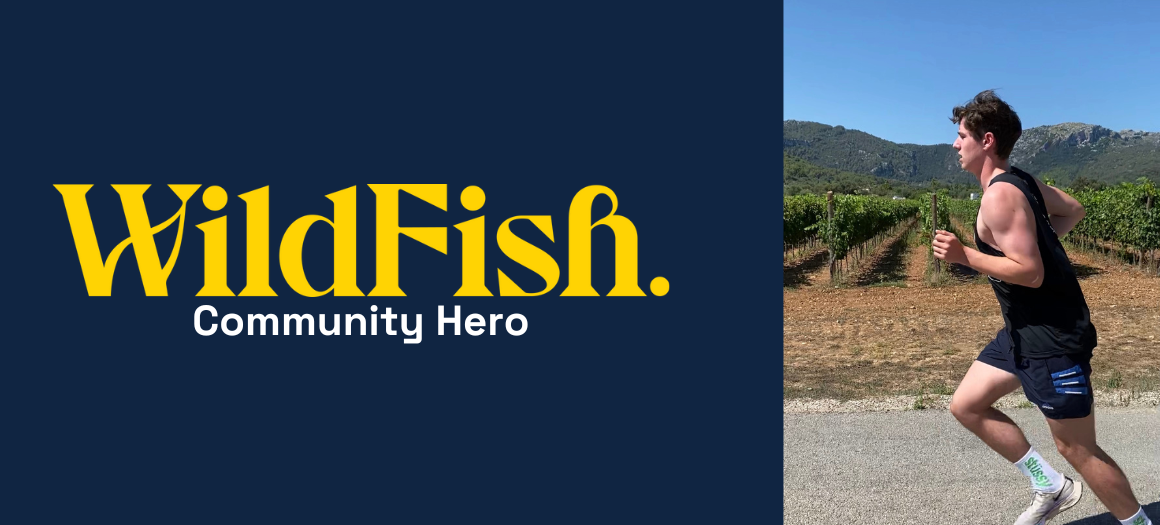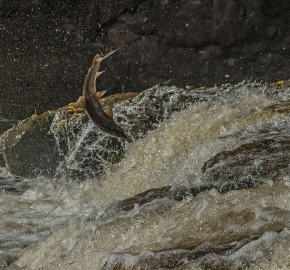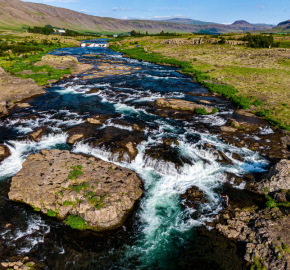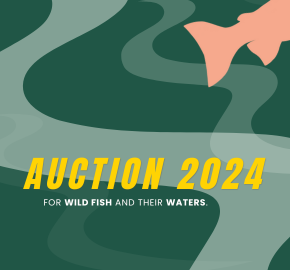An interview with WildFish Community Hero Lucca Froud

WildFish Community Hero, Lucca Froud has blown us away with his gruelling 300-kilometre ultramarathon challenge to raise awareness of the crisis facing wild fish and their waters.
In the days leading up to the challenge, we sat down with Lucca to find out more about his motivation for taking on a huge challenge like this one and what he’s had to do to prepare for it.
Lucca set the scene for us. What does an ultramarathon challenge like this one involve?
Ultramarathons vary in length. For this particular challenge, I’ll be running approximately 300 kilometres. The running is broken down into seven marathons which I’ll run over seven consecutive days, starting at the Marble Arch in London and crossing the finish line at the Arc de Triomphe in Paris.
This is a serious test of physical ability and mental strength, why take on such a huge challenge?
The climate crisis is the single most significant threat to humans and the natural world. The destructive effects that it has on our planet are immense and glaringly obvious. If running 300 kilometres helps to make more people aware of the impact this crisis is having on oceans, rivers and wild fish then I’ll have achieved what I set out to do.
Watery places are clearly important to you, why?
When I was a child, I spent most summers fishing off the beach in Dorset. I loved it. Most days we would only need to fish for an hour to catch our dinner. I remember one day in particular swimming among hundreds of schooling sea bass schooling right on the shoreline. Today, fishing and swimming with fish are still two of the things I love most in life. Unfortunately, the chance to experience these amazing things is disappearing before our eyes.
You’ve spent time understanding the complexity of the problem. What have your learnt?
Oceans, rivers and water dependant wildlife are more threatened today than they have ever been. It is estimated that by 2048 our oceans will be empty. Each year 2.7 trillion fish are taken from our ocean. To put that into context that would be like killing the entire Earth’s human population 306 times every year. On top of that, our water environments are being poisoned by toxic chemicals and raw, untreated sewage while open-net fish farming causes widespread damage to the environment and puts wild fish at increased risk from infection and disease.
Our oceans are some of the most incredible and beautiful ecosystems, they are also pivotal in preventing climate change. Far bigger than any rainforest, the ocean is the greatest carbon sink on Earth storing 93% of all Carbon. It holds marine plants that store as much as 35 times more carbon than land plants, and fish that deposit 16% of the ocean’s carbon at the bottom of the sea through digestion, respiration and their physical bodies when they sink down when they die.
Why WildFish?
It is vital that oceans, rivers and wild fish population’s are protected. Governments must be persuaded to clamp down on unethical fishing farming, pollution and industrial trawling to allow oceans and rivers the chance to regenerate.
This is exactly the work that WildFish completes day to day. They campaign to protect fish and their waters, actively holding the government to account in a way that few other organisations do.
So, how do you prepare for a challenge like this?
Straight away I knew I had to do two things. Firstly, I had to do tell enough people that I was going to do it because I knew that if I did there was no way that I was going to deal with the embarrassment of not doing it. Secondly, I had to actually train for it.
After telling enough people about the run I couldn’t pull out! From then on it got more serious. I started to research how to train for running 7 marathons in 7 days. I read blogs, stalked Strava accounts and listened to podcasts. From my research, I had worked out that my weekly mileage in training needed to peak at roughly around 30% of what I would go on to run in the real event. So, I had to find some way of getting from the 30 kilometers I was running in a week up to 100 kilometers – no mean feat!
Has training gone well?
I didn’t have the luxury of time on my side so took a giant leap to 60 kilometers a week at the start of training. As a general rule of thumb its wise not to increase weekly mileage by more than 10% at a time. The jump from 25 kilometers to 60 kilometers was a 240% increase.
I ran the first week at 60 kilometers fine and even increased it to 75 kilometers the next week. I then brought it back down to 60 kilometers for the 3rd and 4th weeks of the training block because my body was tired. I knew an aching and stiff body was an inevitable part of ultramarathon training but I kept picking up small knocks. I was more than mentally strong enough to run through them but I didn’t want to risk making them worse and not be able to run to Paris at all. So, 4 weeks into my training block I took the tough decision to have a rest week.
The decision was difficult as every day of training is important and some would say that every day that I didn’t train was a day wasted. I was also daunted by the fact that I was struggling to even run 60 kilometers a week and was still so far off my goal of running 100 kilometers a week in training, let alone the 300 kilometers I would have to run to get me from London to Paris.
Taking that week off was one of the best decisions I made throughout training. Ultramarathon running is a sport that is just as much about listening to your body as it is pushing through its pain. My body healed itself well during my week off and I have now finished my fifth and final week of training ahead of the challenge start.
How can people support your challenge?
I’m completing this challenge to raise awareness of the crisis facing wild fish and their waters. Every penny I raise will fund the work WildFish do to protect vulnerable freshwater species and habitats.
To get involved, please visit my JustGiving page and consider making a donation.
SPONSOR LUCCA
List of References
- https://www.nationalgeographic.com/animals/article/seafood-biodiversity
- http://www.fishcount.org.uk/published/std/fishcountchapter19.pdf
- https://tos.org/oceanography/assets/docs/14-4_feely.pdf
- https://www.wwf.org.uk/what-we-do/planting-hope-how-seagrass-can-tackle-climate-change
- https://www.southampton.ac.uk/news/2021/02/fish-carbon-flux.page



